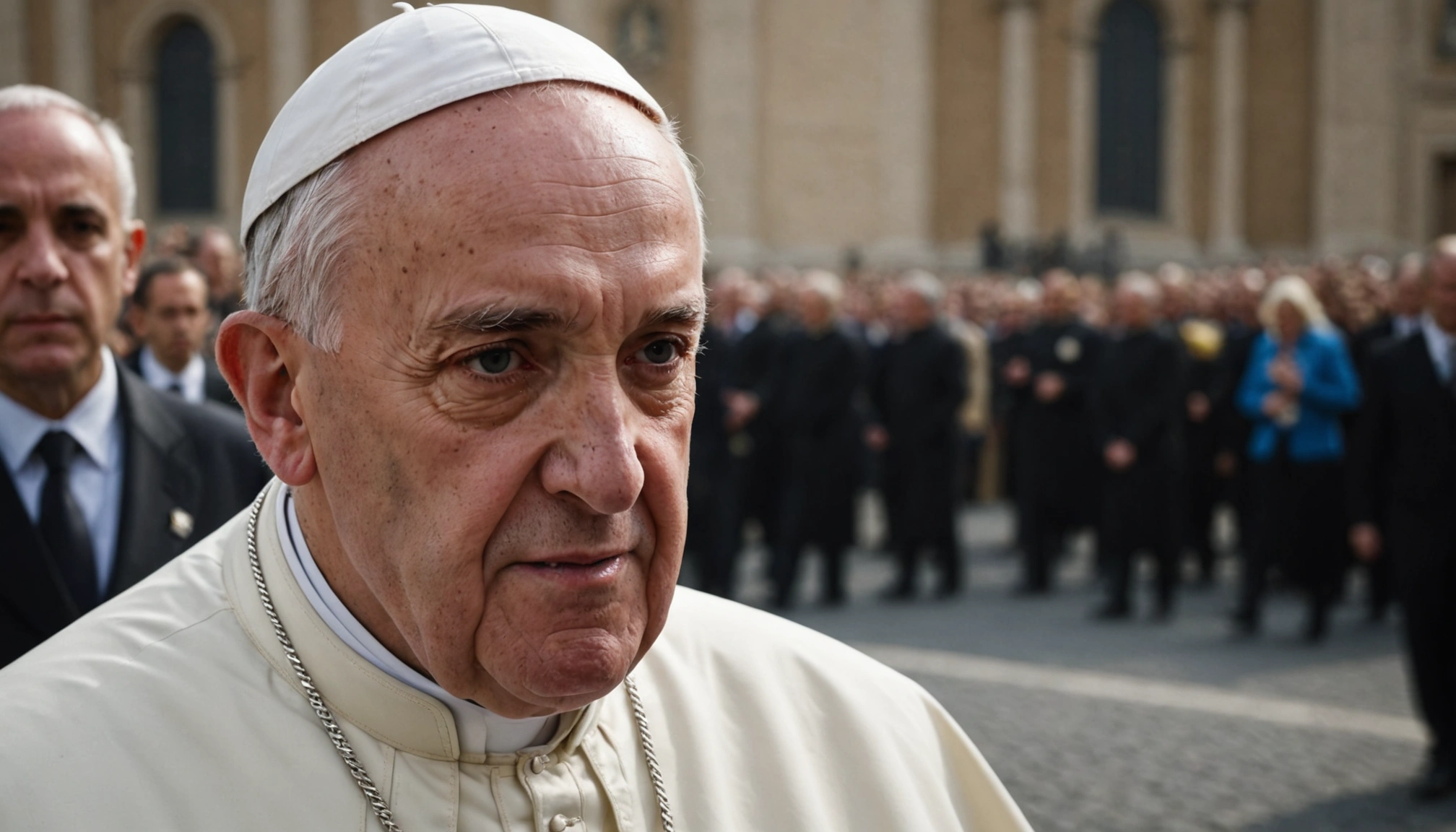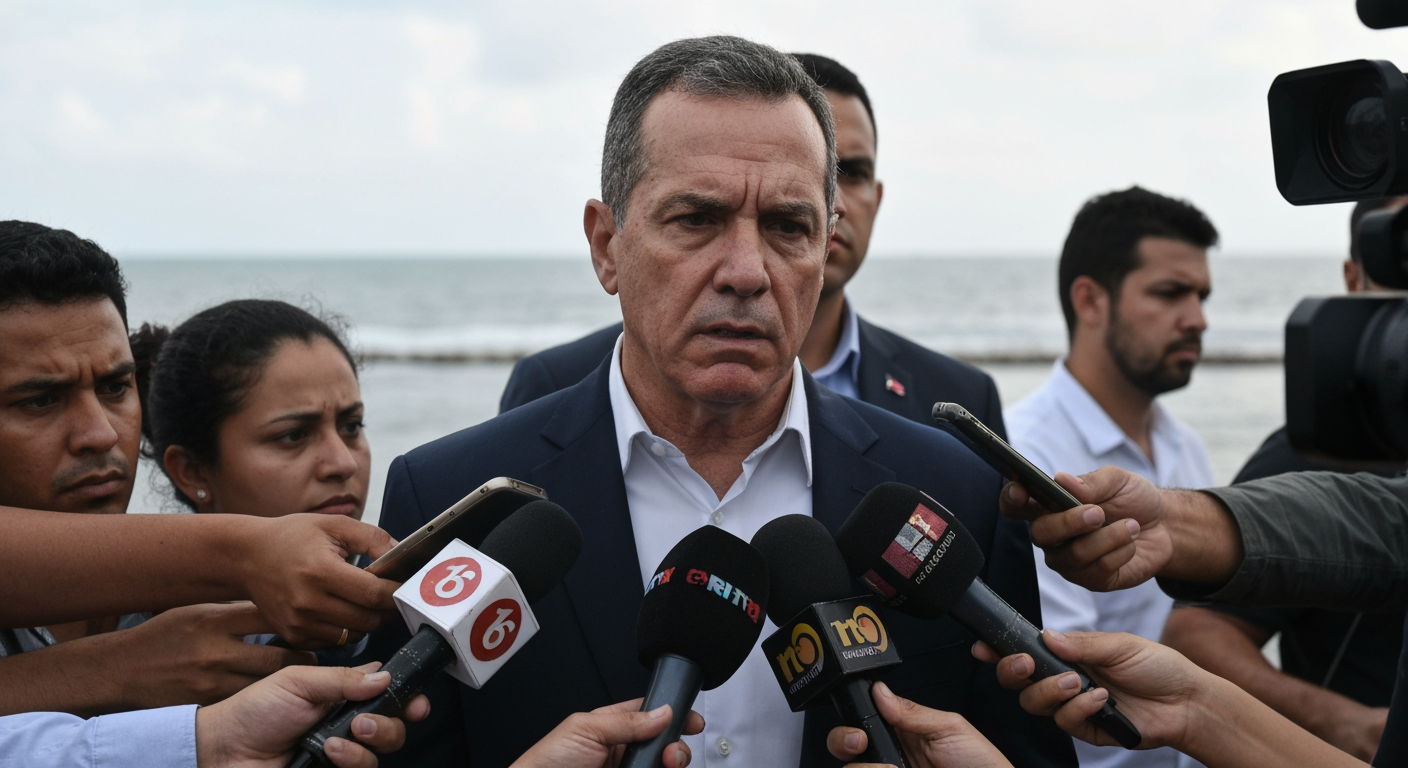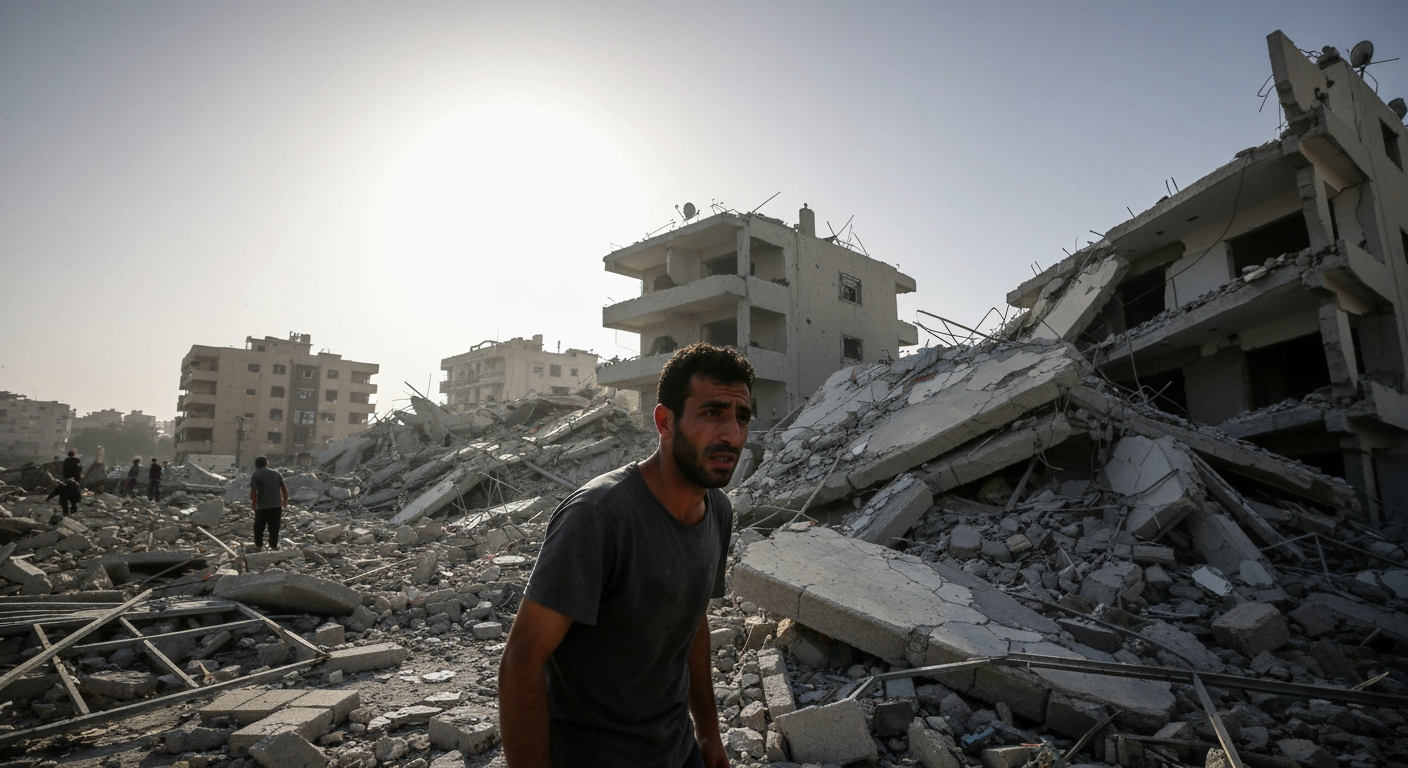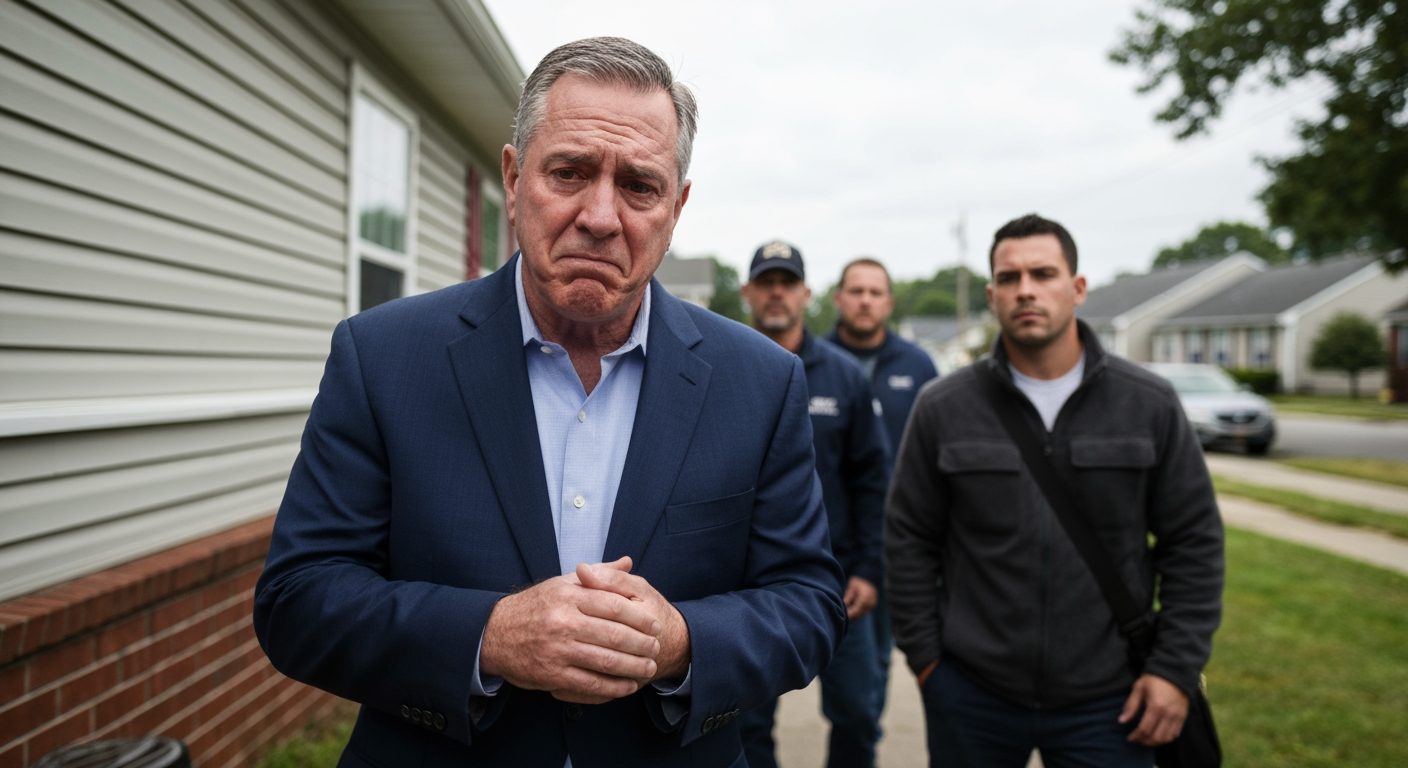World Prepares for Pope Francis's Funeral Following His Death at 88

VATICAN CITY - The world is preparing to bid farewell to Pope Francis, who died Monday at the age of 88 after suffering a stroke and irreversible cardiocirculatory collapse. Heads of state, religious leaders, and hundreds of thousands of mourners are expected to converge on Vatican City for the funeral, scheduled for Saturday in St. Peter's Square. The passing of the pontiff marks the end of a transformative era for the Catholic Church, and the beginning of a period of transition as the College of Cardinals prepares to elect his successor.
A Simpler Farewell
Pope Francis, in accordance with his wishes for a more humble and simple ceremony, will be buried in a plain wooden coffin, a departure from the elaborate traditions of his predecessors. The coffin was sealed Friday evening in a private ceremony led by Cardinal Kevin Farrell, after hundreds of thousands of mourners paid their respects during a three-day public viewing in St. Peter's Basilica.
The funeral Mass, expected to last approximately two and a half hours, will be held outdoors in St. Peter's Square, weather permitting. More than 200,000 people are anticipated to attend, including representatives from over 130 foreign delegations, encompassing 50 heads of state and 10 monarchs. Among the dignitaries expected are U.S. President Donald Trump, Ukrainian President Volodymyr Zelensky, and Prince William.
Following the funeral, Pope Francis will be laid to rest in Rome's Basilica of Santa Maria Maggiore, one of his favorite churches, making him the first pontiff in over a century to be buried outside the Vatican. His will stipulated a simple tomb, without particular decoration, inscribed only with his name: Franciscus.
A Legacy of Reform and Inclusion
Pope Francis, the first Latin American pope, leaves behind a legacy of significant change within the Catholic Church. Elected in 2013, he focused on social justice, environmental issues, and a more inclusive Church, impacting the lives of 1.37 billion Catholics worldwide.
His papacy was marked by a commitment to the poor and marginalized, a focus on environmental stewardship, and efforts to reform the Vatican's financial structures and address clerical abuse scandals. He softened the Church's stance on homosexuality and contraception, opened leadership positions to women, and rejected the opulent lifestyle often associated with the papacy.
However, his reforms were not without controversy. While he upheld the Church's teaching opposing abortion, he emphasized the need for spiritual accompaniment for women who have had abortions. His handling of sexual abuse cases also drew criticism, despite his efforts to establish procedures for investigating bishops who abuse or cover up for predator priests.
The Sede Vacante and the Conclave
With Pope Francis's death, the Vatican has entered a transitional period known as "sede vacante," meaning "while the seat is vacant." During this time, the College of Cardinals assumes temporary governance of the Church, though no major decisions can be made until a new pope is elected.
Within 15 to 20 days after the funeral, the College of Cardinals will convene in the Sistine Chapel for a papal conclave, a highly secretive process to elect the next pope. The cardinal electors, all those under the age of 80, will be locked away from the outside world until they reach a decision.
The election process involves multiple rounds of voting, with a two-thirds majority required to elect a new pope. Once a pope is elected, white smoke will rise from the Sistine Chapel, signaling the news to the world. The new pope will then appear on the balcony of St. Peter's Basilica to greet the crowds.
The Future of the Catholic Church
The election of Pope Francis's successor will determine the future direction of the Catholic Church. The College of Cardinals is now tasked with choosing a leader who will either continue Francis's progressive reforms or steer the Church back towards theological conservatism.
Pope Francis appointed the majority of the cardinals who will participate in the upcoming conclave, increasing the representation of religious figures from often-overlooked regions. This has led to speculation about whether the next pope will be from Africa or Asia, and whether he will continue Francis's emphasis on social justice and outreach to the marginalized.
Some potential frontrunners to succeed Pope Francis include Cardinal Luis Antonio Tagle of the Philippines, who is considered a strong contender to continue Francis's progressive agenda. However, the outcome of the conclave remains uncertain, as ideological factions within the Church weigh their options between continuity and a more conservative shift.
A Time of Reflection and Transition
As the world prepares to say goodbye to Pope Francis, the Catholic Church stands at a crossroads. His death marks the end of an era defined by reform, inclusion, and a focus on the poor and marginalized. The upcoming conclave will determine whether the Church continues on this path or takes a different direction. Regardless of who is chosen as his successor, Pope Francis's legacy will continue to shape the Catholic Church for generations to come. The coming days will be a time of mourning, reflection, and ultimately, transition, as the world awaits the selection of the next leader of the Catholic faith.
Related Articles

Cuba Levels Terrorism Charges Against Six Following Deadly Speedboat Confrontation
HAVANA – Cuban prosecutors have formally charged six individuals with terrorism, stemming from a dramatic speedboat shootout with the Cuban Coast Guard last week that resulted in the deaths of four others. The six men, identified as U.S.-based Cubans, are accused of attempting to infiltrate the island with weapons and a mission to destabilize the Cuban government

Escalation in Middle East: Israeli Strikes Devastate Lebanon Amid Broadening Regional Conflict
BEIRUT, Lebanon – A new and deadly wave of Israeli airstrikes has ravaged areas across Lebanon, including the capital Beirut and its southern suburbs, leaving dozens dead and scores wounded, as the broader Middle East grapples with an escalating regional conflict. The intense bombardments, which began on March 2, 2026, mark a significant intensification of hostilities between Israel and the Iran-backed Hezbollah militant group, drawing Lebanon deeper into a wider war involving the United States and Iran. The recent violence erupted following Hezbollah's launch of rockets and drones into northern Israel, which the group stated was in direct retaliation for the killing of Iranian Supreme Leader Ali Khamenei

Father of Accused Georgia School Shooter Convicted of Murder in Landmark Case
WINDER, Ga. – In a verdict that sends reverberations through legal and gun safety communities nationwide, Colin Gray, the father of a teenager accused of a deadly school shooting in Georgia, was convicted Tuesday of second-degree murder and involuntary manslaughter